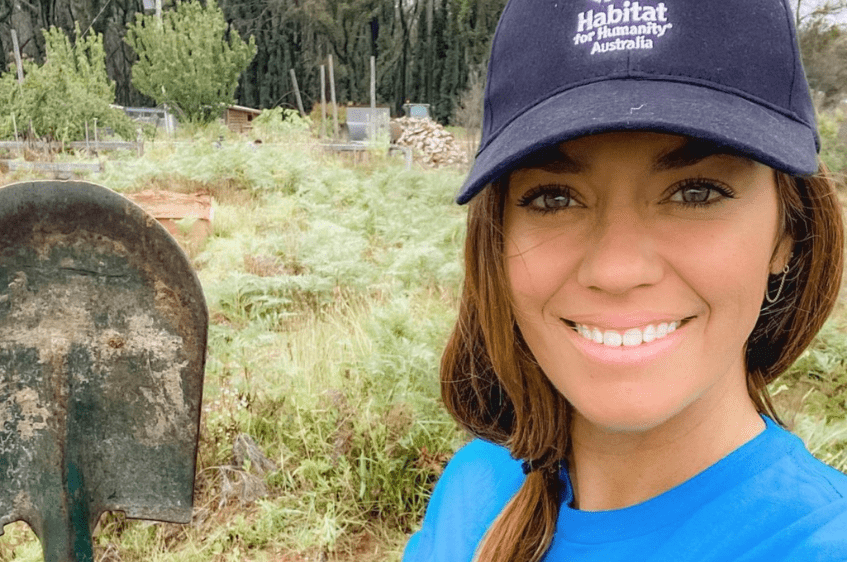In partnership with Green + Simple
Did you know volunteering is good for the planet?
Did you know volunteering is one of the many profound actions we can take when it comes to climate change, ensuring the inclusion of communities and individuals most often left behind?
And that making the connection between the climate crisis, human rights and the impact of severe weather events on vulnerable communities not just around the world but here in Australia is a step towards finding a way for everyone (regardless of circumstances) to live lighter and better?
Each year on December 5, the UN General Assembly celebrates International Volunteer Day (IVD), shining a light on the efforts of all the volunteers and organisations with shared values who have worked together.
Habitat for Humanity Australia’s Head of Fundraising Dan Peyton says the Local Village volunteering program, which brings together a team of like-minded people to assist fellow Australians in recovering and rebuilding after natural disasters, can achieve more in one day than a single property owner could in months, and so while to a volunteer their contribution might seem insignificant, the truth is the smallest actions can have a lasting impact.
“Extreme weather events, which are made more intense by climate change, reduce and degrade the affordable housing stock in Australia and overseas. By partnering with families to build stronger, more disaster-resilient and more energy-efficient housing, we have seen how adequate, safe and resilient shelter can contribute to both the immediate security and long-term wellbeing of families while reducing a home’s environmental impact,’’ Dan says.
“Habitat aims to deploy our incredible volunteers to where the need is greatest. Our disaster recovery and resilience programs focus on supporting people who may otherwise have little or no help in the enormous tasks that face them, whether that be getting back on their feet after the ‘Black Summer’ bushfires or preparing for future disasters. We also work closely with local service providers who already walk alongside people vulnerable to disasters.”
According to the UN it is typical that volunteers are motivated by values like those of justice, equality and freedom, and when a group of people come together with these like-minded values, change begins to be possible.
“Together with our volunteers, we have a responsibility and a very unique opportunity to use our voice to raise awareness of emerging housing issues and the important role that housing can play in mitigating the impacts of climate change,’’ Dan says.
Volunteering: what it’s like with Laura Wells
At the beginning of 2020 Marine scientist, environmental activist and model Laura Wells volunteered in a Local Village program in the Blue Mountains, NSW working on properties affected by the 2019/2020 bushfires.
“I feel hugely passionate about climate action and seeing people who have had their lives and their homes and everything destroyed because of inaction is heartbreaking,’’ Laura says.
“Personally I got to meet a lot of like-minded people from all different walks of life. But I think the thing I realised the most is so many people have the biggest heart and really want to help in some way, it’s so humbling to know that humanity will come together like that.’’
According to Laura, volunteering offers the type of on-the-job learning that can provide a getaway for volunteers to tackle climate change in their own communities.
“By volunteering you get to see firsthand what’s happening and how it’s affecting others, and when it comes down to it, we can’t rely on our government to change, we need to be the people that do it and act, and by volunteering, you can do that,’’ she says.
“And then volunteering can lead to political change and action, because as you’re learning and volunteering, you’re becoming more aware and you’re getting more of a voice and exposing it to more people. So you become this little petri dish of sharing knowledge and action and when you think about it like that, volunteers are the ones that can actually change everything.”
Want to volunteer and help tackle the climate crisis? Learn more about our volunteer program here.


